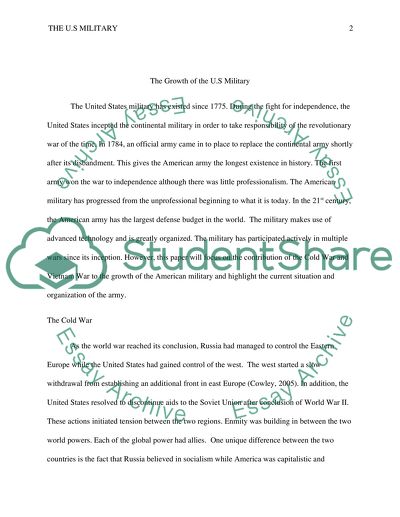Cite this document
(“The growth of the U. S. Military Research Paper”, n.d.)
The growth of the U. S. Military Research Paper. Retrieved from https://studentshare.org/history/1446575-the-impact-of-war-on-the-growth-of-the-military
The growth of the U. S. Military Research Paper. Retrieved from https://studentshare.org/history/1446575-the-impact-of-war-on-the-growth-of-the-military
(The Growth of the U. S. Military Research Paper)
The Growth of the U. S. Military Research Paper. https://studentshare.org/history/1446575-the-impact-of-war-on-the-growth-of-the-military.
The Growth of the U. S. Military Research Paper. https://studentshare.org/history/1446575-the-impact-of-war-on-the-growth-of-the-military.
“The Growth of the U. S. Military Research Paper”, n.d. https://studentshare.org/history/1446575-the-impact-of-war-on-the-growth-of-the-military.


